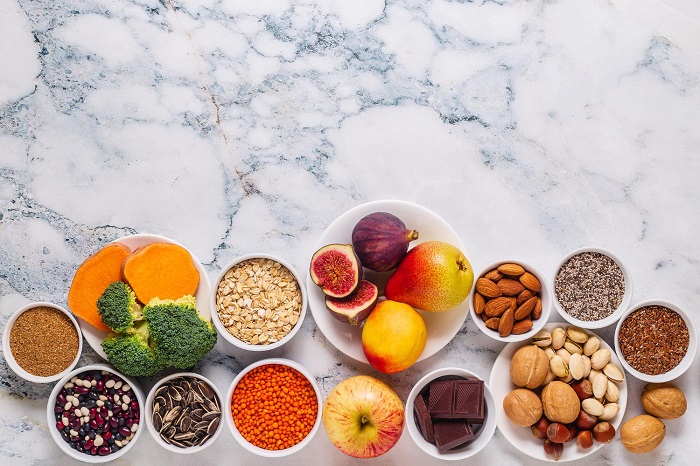Good eating necessitates choosing food devoid of ‘empty calories.’ The only way to do this is by including nutrient-dense food in our diets.
What is nutrient density? In a nutshell, it’s the amount of nutrients you get per calories consumed. Foods that are rich in vitamins, minerals, and all the other ‘good stuff’ that our bodies need. At the same time, devoid of unnecessary added sugars, sodium, and saturated fat. Children learn how to maintain a nutrient rich diet as part of their everyday routine at preschool, and kindergarten for kids.
Here is nutrient rich food for kids. Start them young with proper food choices for a lifetime of good health.
1. Grains
Grains are an indispensable part of our diet.
Benefits: Whole grains are packed with fiber and carbohydrates. What’s more, they are low in fat. Check for the word ‘whole’ on grain pack labels. These variants leave you feeling full longer, keeping that vital check on ‘overeating’!
Recommendation: Go for rolled or steel-cut oats and whole wheat pasta. Choose the healthier ‘brown’ rice and ‘whole-grain’ crackers.
2. Fruits and Vegetables
Kids need their veggies, but they need their fruits, too!
Veggie Benefits: Loads of flavor and are sure to provide variety to your diet; these are packed with nutrients while naturally low in fat.
Veggie Recommendation: Opt for dark, leafy veggies like spinach and kale. Other great veggies to include in your diet are broccoli, Brussels Sprouts, cauliflower, and bok choy, to name a few.
Fruit recommendations: Citrus fruits like grapefruit and oranges make a great fruit choice. Bananas, papaya, and mango, too. As do all berries. Don’t forget that apple to keep the doctor away, and make sure you eat whatever’s ‘in season.’
Know more about the best health drinks for kids to help them stay hydrated and healthy.
3. Food Spotlight: Kale
The ‘emperor’ of greens, this is what your mother had in mind when she said, ‘Eat those veggies!’ One of the best nutrient rich foods.
Benefit: Move over, Popeye! Loaded with vitamins C, A, B6, and K1, this leafy green might even be healthier than spinach. It also has large amounts of potassium and calcium.
Recommendation: Pair kale with healthy fats like olive oil to ensure the proper uptake of vitamins and minerals.
4. Seeds
When browsing supermarket shelves for food items rich in vitamins, you don’t want to miss out on these.
Benefits: Seeds are an excellent source of some of the 14 essential vitamins, namely, vitamins B1, B2, B3, B4, B5, B6, and E.
Recommendations: Choose sunflower and flax seeds if you’re looking for ‘, especially vitamin-dense sources.
5. Nuts
It’s easy to go nuts over these cool munchies you can count on for making a healthy ‘anytime snack.’
Benefits: One of those nutrient rich foods that are packed with vitamins. Specifically, vitamins B1, B2, B6 and E. They’re great for lowering cholesterol and keeping the heart healthy.
Recommendations: Limit yourself to a couple of handfuls a day. Almonds and walnuts are great nut choices!
6. Meat, Poultry, and Fish
Meat lovers should ensure that what they eat is not only juicy but also wholesome! Great to have these on that food list for your nutrition needs.
Meat Benefits: If there were but one word to list the benefits of meat, it would be this: protein. Apart from that, several others, like improving muscle and brain strength and brain and heart health.
Meat Recommendations:
● Choose low-fat, lean cuts of meat.
● Trim outside fat before cooking.
● Limit your intake of meat, though.
Even lean cuts of meat have more fat than non-meat protein sources.
Poultry Recommendations: Opt for chicken breasts that are lower in fat and remove the skin and outside fat before cooking. Grilling and roasting are healthier ways to prepare poultry.
Fish Benefits: Fish is packed with vitamin D and B12, which are crucial in early development.
Fish Recommendations: The fish you procure should smell clean and have firm flesh. Poaching and steaming fish are among the healthier preparations.
7. Food Spotlight: Salmon
This ‘fatty fish’ is excellent for your nutrition needs.
Benefit: Salmon is packed with omega-3s crucial for optimal body functioning. Eating salmon regularly can help prevent your risk of heart disease.
Recommendations: Eat salmon at least once, if not twice a week.
8. Dairy
Milk is a staple part of every child’s diet.
Benefits: Looking for that calcium fix? You’ll get it with that glass of milk, sure. But there’s more. Dairy products also have carbohydrates, calcium, phosphorus, and potassium. They are great for digestive health, bone health, and dental health.
Dairy Recommendations: About 3 cups.
9. Food Spotlight: Yogurt
Yogurt is one of those healthy foods for kids you can’t ignore. A truly excellent option for breakfast, dessert, or even the snack in between!
Benefits: It is infused with probiotics, essentially ‘good bacteria responsible for maintaining a healthy gut.
Recommendation: Opt for Greek yogurt. It has zero added sugar and twice the protein of regular yogurt.
10. Eggs
Their versatility in the kitchen makes them one of the most loved nutrient rich foods.
Benefits: A large egg is packed with 6 grams of protein, a great source of vitamins D and B12, and iron.
Recommendations: Kids love a ‘scrambled eggs breakfast,’ a healthier egg option. But if they prefer a sunny side up or omelet, those work well, too.
Poor nutrition in early childhood can lead to essential nutrient and mineral deficiencies that can hamper children’s immunity. Ensure your child stays on top of their nutrition game by having them incorporate the foods listed in this article into their diets. Start your child’s early education with preschool admission in EuroKids.
















